Justin Bolois Dreams of Rare Apple Pan Uniforms, Lawry’s Butter Knives, and Swan Oyster Depot Tees
His pop-up, Restaurant Relics, is a gold mine of restaurant history and holiday gifts.
Photographs by David Gurzhiev
Justin Bolois is standing in a garage in Altadena surrounded by racks of worn-in t-shirts and vintage objects emblazoned with typefaces of iconic dining establishments, logos of beloved food brands, and imagery from popular Food Network shows. “You can go into any vintage store in Hollywood or Melrose, and they’re hanging a band tee for, like, $500. I’m like, ‘Eh, I don’t want the band tee, I want the Apple Pan t-shirt,’” he says. The garage, attached to his home, is the de facto headquarters of Restaurant Relics, a nascent project Bolois describes as “part museum, part store” that relies upon his mounting collection of restaurant merch and cultural culinary artifacts, most of which is for sale. “I’m not just trying to sell $500 t-shirts, but there could be something equivalent to an Elliott Smith or Green Day shirt from the ‘90s for me. Like this Emeril Live crew fleece,” he adds, pulling out a collared, cushy black zip-up embossed with the name of the celebrity chef’s TV program in bright green, plus the word “crew” in white on the front. Priced at $400—and acquired from a former Emeril Live crewmember—it’s the most expensive item in his collection.
Also among his cache of mostly ‘80s and ‘90s-era mementos is a three-quarter sleeved Chez Panisse softball shirt, Iron Chef merch, a spumoni scoop from Brooklyn’s L&B Spumoni Gardens signed by the owner, a ceramic Chateau Marmont ashtray found in a Connecticut thrift store, and a t-shirt from Hitching Post (the Central Coast steakhouse made famous by the movie Sideways) with a Los Angeles Times quote printed on the back. “Perfect Steaks… and a Daring Pinot,” it reads. Bolois has been captivated by merch since the beginning of his career, which has spanned over a decade in food media and restaurants. He grew up in Sherman Oaks, and as a kid, he often went thrifting with his mom, who worked as a costumer for commercials. “Searching for the thing that’s overlooked or finding the deal, those were some pillars of my upbringing,” he says.
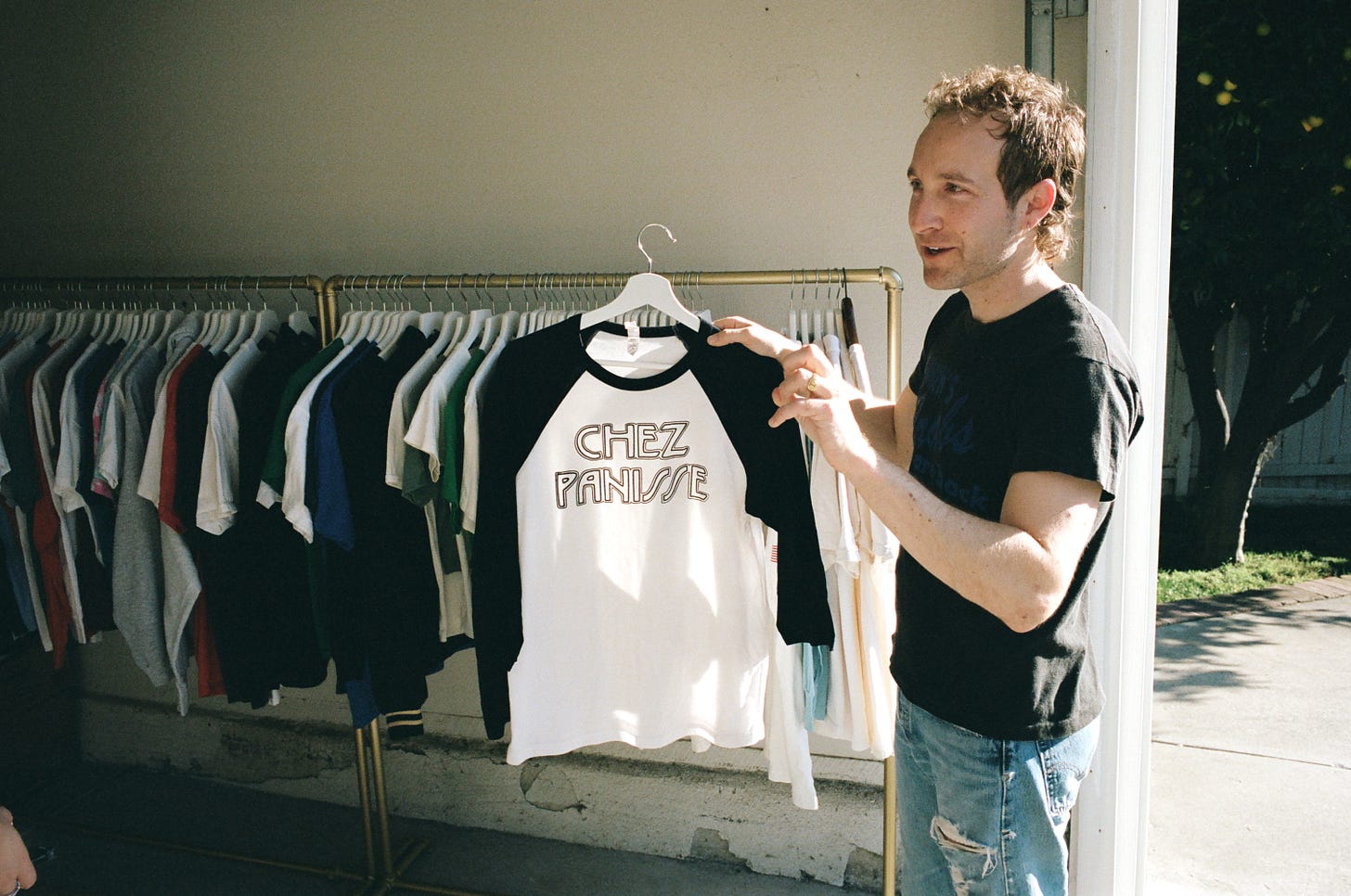
For college, he landed in Berkeley and, afterward, spent a couple of years working in the front of house at the legendary California restaurant Chez Panisse, where he was granted the bootleg softball shirt as a team member. Then, an opportunity to work as a features editor for First We Feast brought him to New York, which transitioned into a video production role, ultimately enabling him to return to Los Angeles. Today, he’s the VP of Development at First We Feast and the showrunner for various web series on the channel. “I’ve been telling stories about food [for ten years],” Bolois says. “And now I’m trying to figure out what it would mean to tell stories with merch.”
In recent months, he’s sold his wares sparingly through pop-ups. First at the culinary bookstore Prospect in South Pasadena, then Central Flea, and soon after, at the Family Style Food Festival. There will be several opportunities to dig into Bolois’ collection and find something special this holiday season. On Monday, December 2nd, he’ll be at Quarter Sheets selling relics while chef-owner Aaron Lindell serves up green chile burgers. The following Saturday, December 7th, he’ll pop up at Woon in Silver Lake (alongside menu items inspired by The Cheesecake Factory), and a week later, on the 15th, he’ll return to Prospect. As is the case for many vintage sellers, not everything in Bolois’ collection is for sale.
The signed spumoni scoop from L&B is a personal treasure. Bolois had his 30th birthday party at the historic pizzeria known for its Sicilian pies and rainbow ice cream. (“The owner Camille, who I love, she’s a riot, I asked her to sign it for me because she’s such a legend.”) As is an Apple Pan uniform from its former era, before the music mogul Irving Azoff purchased it in 2019. Bolois has been a regular at the 77-year-old diner since high school. His order is a hickory burger and a slice of banana cream pie. A friend of his mom’s transported a chocolate cream pie from West LA to Bodega Bay in Sonoma for his wedding. “In my mythology, [The Apple Pan] looms large,” he says. “This stuff, in some sense, is a library of my experience.”
He also possesses a host of storied JG Melon merch on loan from the Manhattan burger institution’s owner, Jaine O'Neill. Bolois became friends with O’Neill while he was directing First We Feast’s The Burger Show. When he told her about Restaurant Relics, she shipped him a few JG Melon t-shirts from the 1970s—printed with paintings she made herself—so he could display them like artworks in a gallery. “Because of what you just did,” Bolois said to David, whose eyes lit up when he discovered the t-shirts. “You picked it up, and your jaw dropped. Same for me.”
Like many stagnant obsessions, Bolois’ commitment to growing and sharing his collection intensified during the pandemic. “I was watching a lot of Antiques Roadshow. I’ve always loved that program, and Hulu had it, so I was bingeing, and that inspired me,” he says. Bolois is also well-versed in Grailed, a vintage resale platform for menswear. “In my mind, the funny Venn diagram was restaurants, Grailed, and Antiques Roadshow, and Restaurant Relics was in the middle of that.” It was affirming when he noticed stores like New York’s Fantasy Explosion and Procell building a customer base by focusing on hyper-regional merch. It deepened his drive to apply that approach to the food world.
“Sometimes, with a t-shirt, that might be the last remaining thing of a restaurant, a restaurant may have shut down. Your eating experience there is fleeting, but you could hold onto something.”
With Restaurant Relics, Bolois is driven by an interest in history and cultural preservation, an appreciation for graphic design, and his discerning eye for the patina and wear of used clothing. “I’d much rather find the 1980s Jimmy Buff’s New Jersey hot dog shirt, as opposed to [hypothetically] Supreme collaborating with Yamashiro,” he says. He has several Skyline Chili t-shirts from 1980s Cincinnati, a butter knife engraved with “L” for Lawry's The Prime Rib, two Ben & Jerry’s tees in iconic hard-to-find styles, rare swag from San Francisco’s Swan Oyster Depot, and a neon-yellow Spago cycling team jersey imprinted with sponsors. The latter is an example of Restaurant Relic gold: staff gear that would have never been sold to a customer in the first place.
His collection blends items he’s personally interested in, merch from undeniably classic establishments, and random, well-worn, food-related tees. Because he grew up going to Hawaii and has family in New Mexico, he’s always looking out for stuff from Matsumoto Shave Iced and anything green chile pepper-related, in addition to finds from restaurant titans like Musso & Frank’s (est. 1919) and Newport Seafood (1988). “My biggest white whale would be Sushi Gen in Downtown L.A. If there were ever a clean shirt with a logo, that would be tops,” he says.
As for his pricing, it ranges from $15 for a vintage Lawry’s pin to $175 for a Cheesecake Factory hoodie. Because of its fit and the fact that it's harder to come by, a 1979 t-shirt printed with several dozen typefaces of quintessential Philadelphia bars and restaurants ($88) has more value than a 1990s Anchor Bar t-shirt ($50), the Buffalo sports bar known for inventing buffalo wings. One shirt in Bolois’ arsenal is from Thesis Bar in New Paltz, NY, which burned down in 1987. The bar name stretches across the chest with a dirty martini in place of the “i.” “Sometimes, with a t-shirt, that might be the last remaining thing of a restaurant, a restaurant may have shut down,” he says. “Your eating experience there is fleeting, but you could hold onto something.”
Bolois doesn’t intend to sell online, at least for now. More than anything, the pop-ups allow him to meet like-minded people, nerd out about restaurant history, and share stories about why specific places are special to certain people. With an appreciation for restaurants and food culture at an all-time high, there’s a greater opportunity to cherish these mementos, and Bolois is intent on reveling in the cultural devotion. “If you thought of restaurant tees or merch, it was Hard Rock Cafe,” he says of the past. “I think there’s more to it than that. I think people are down to dive a little deeper.”



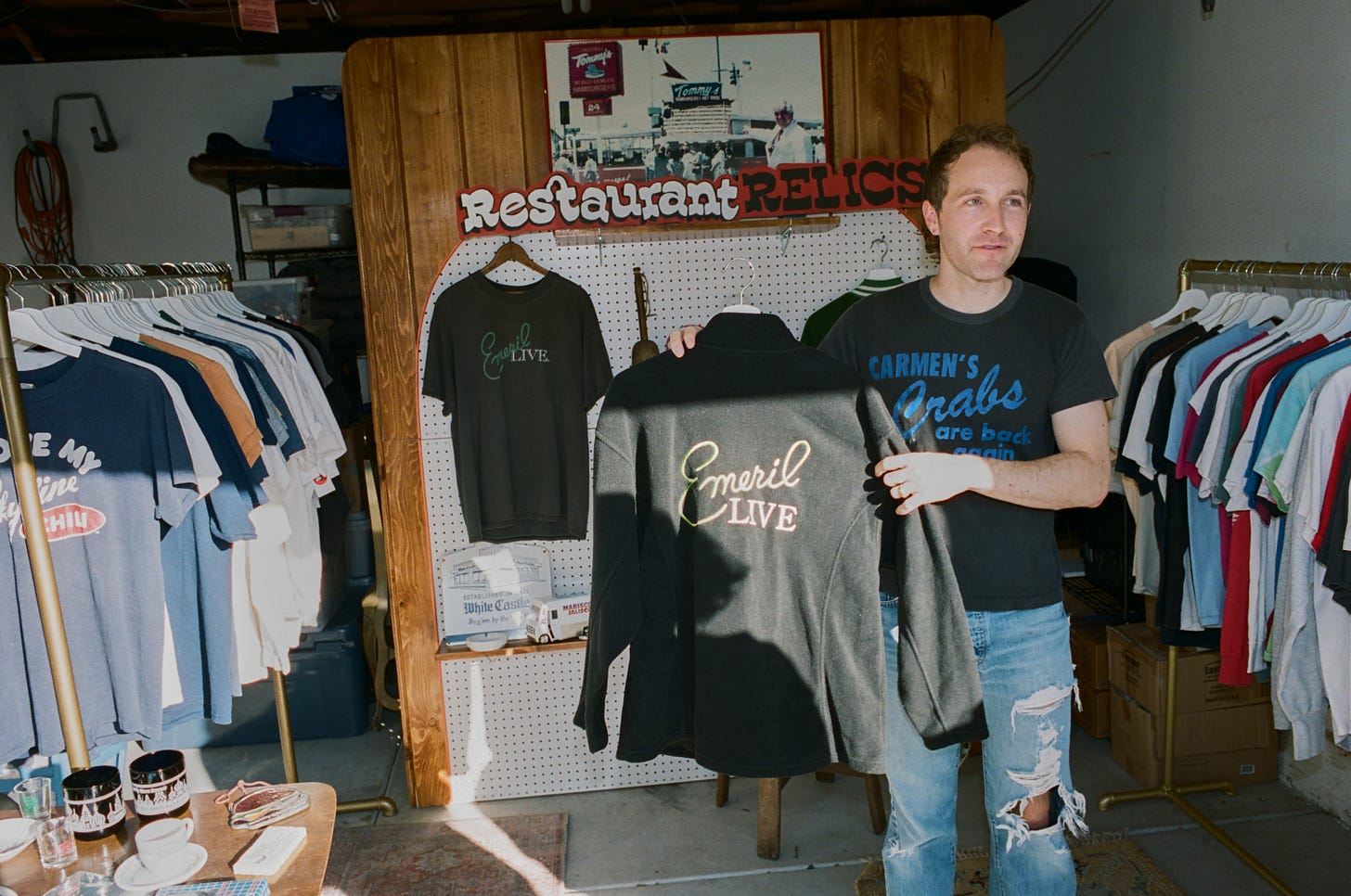

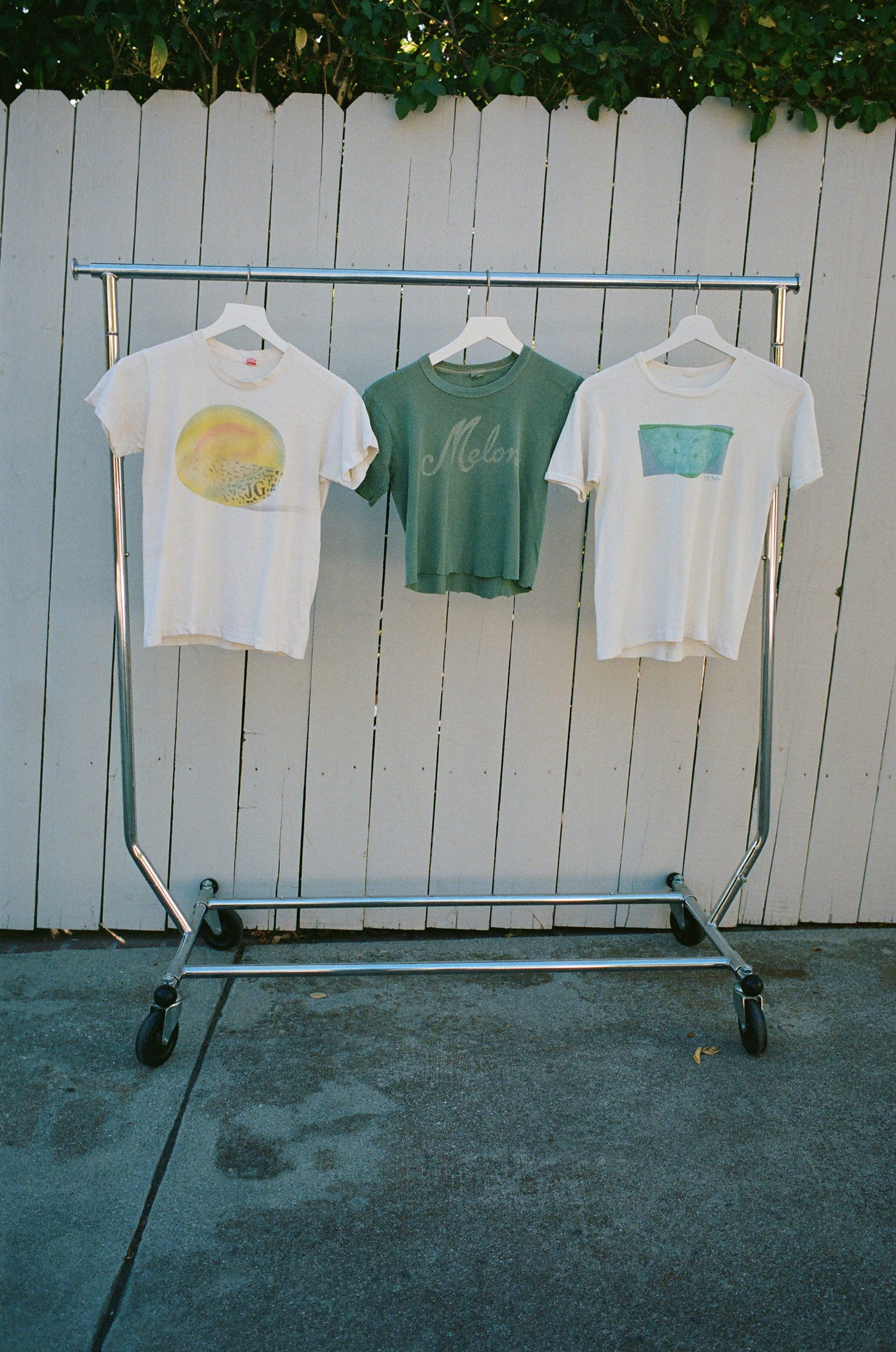
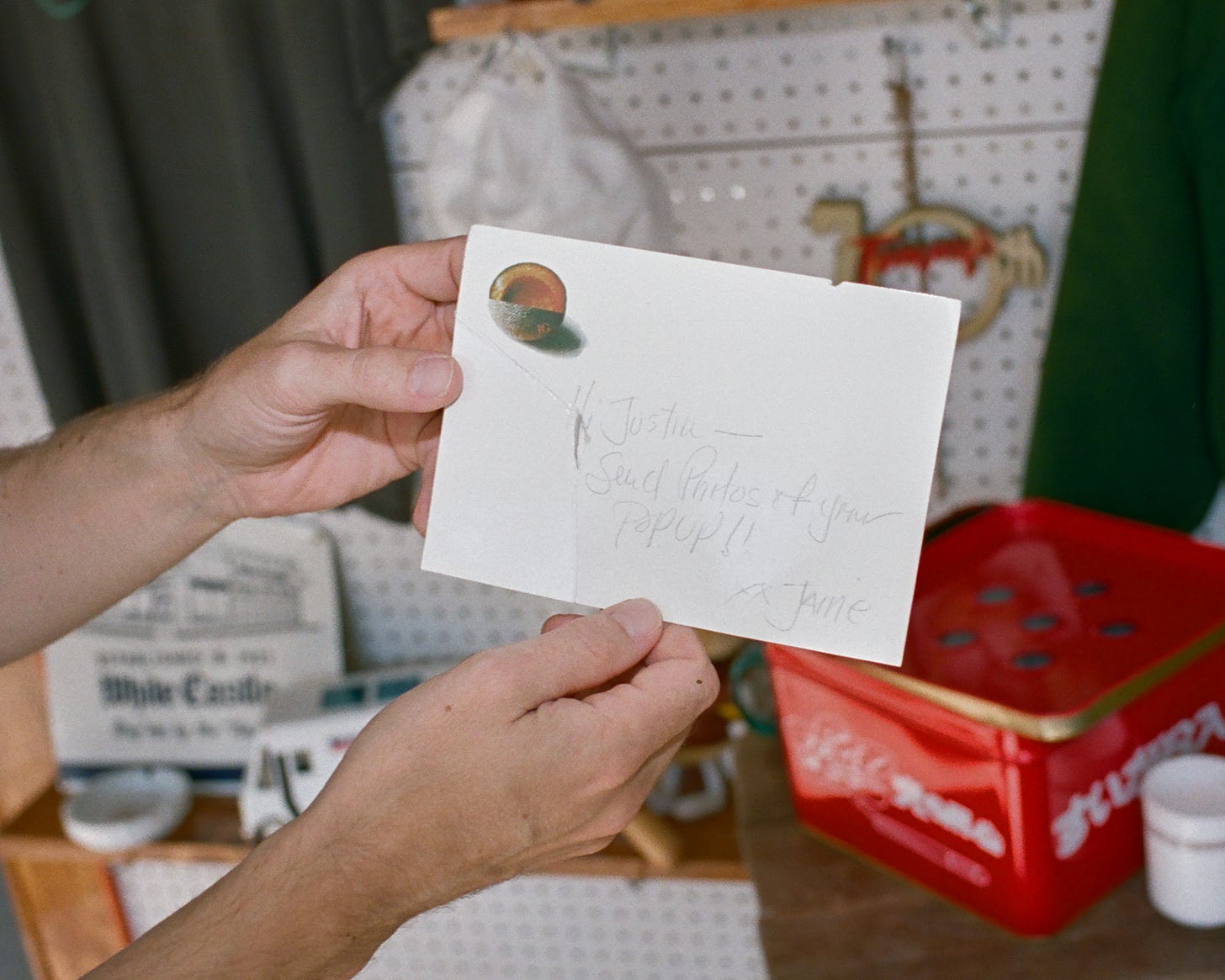

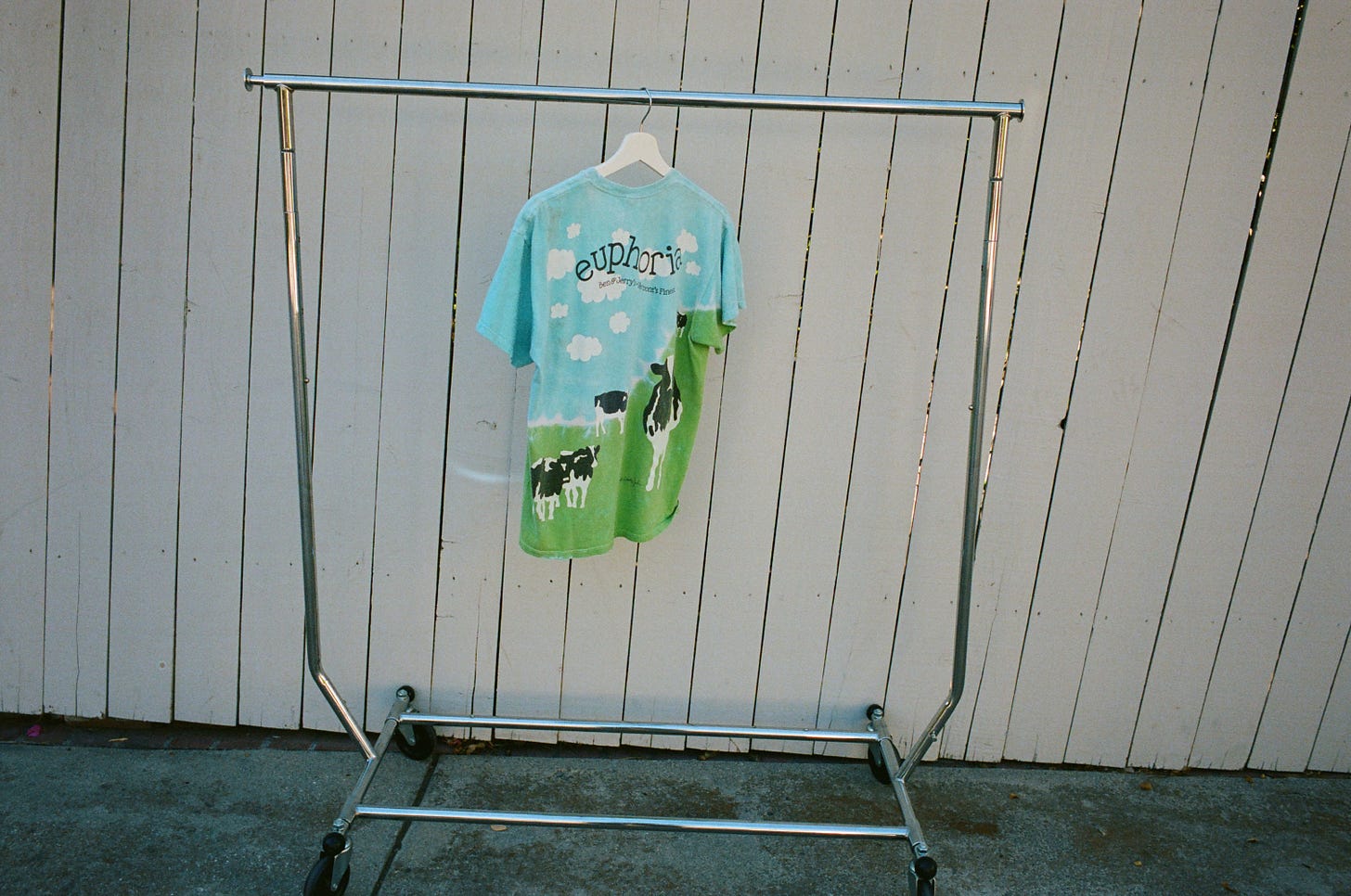
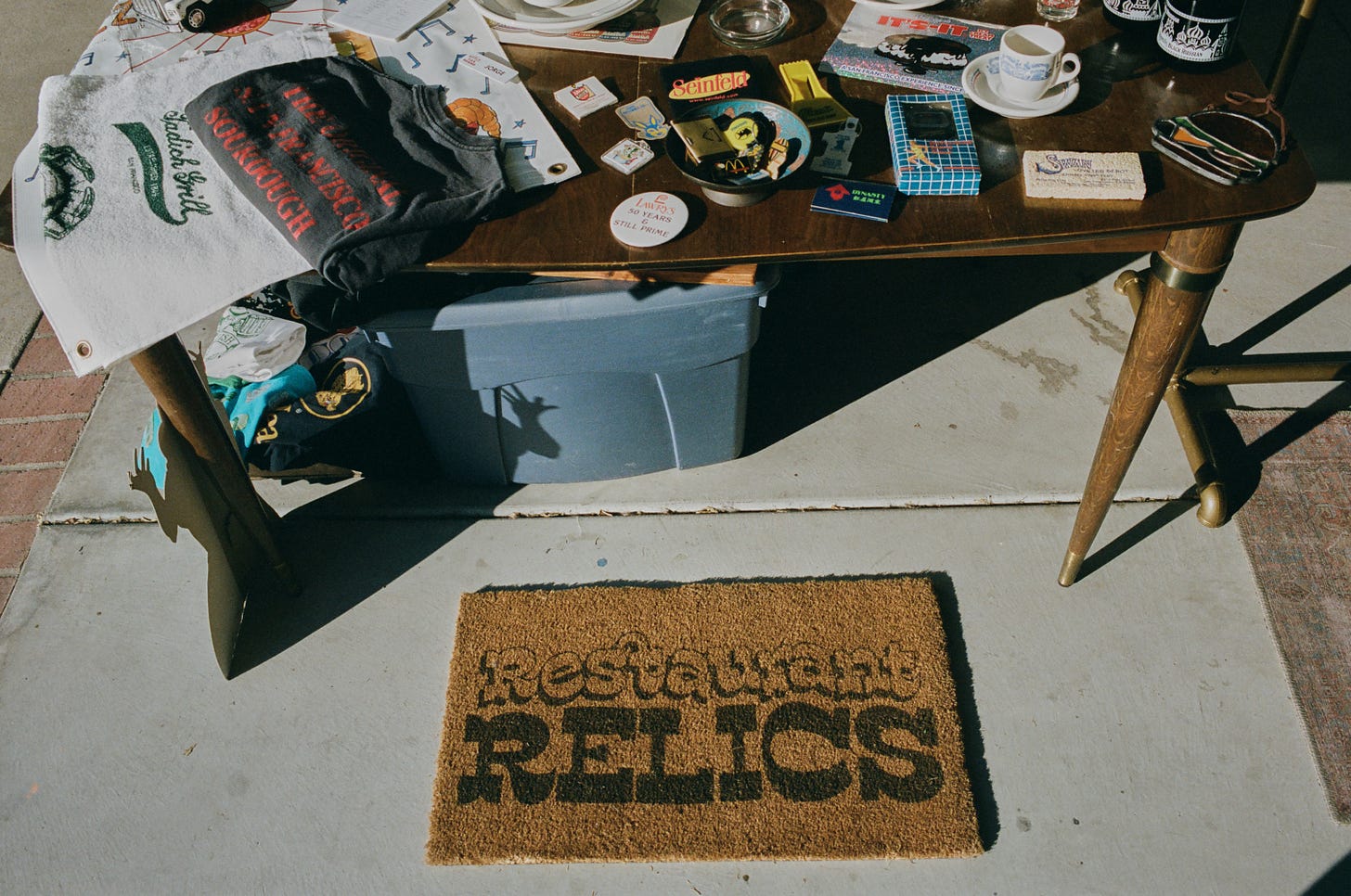
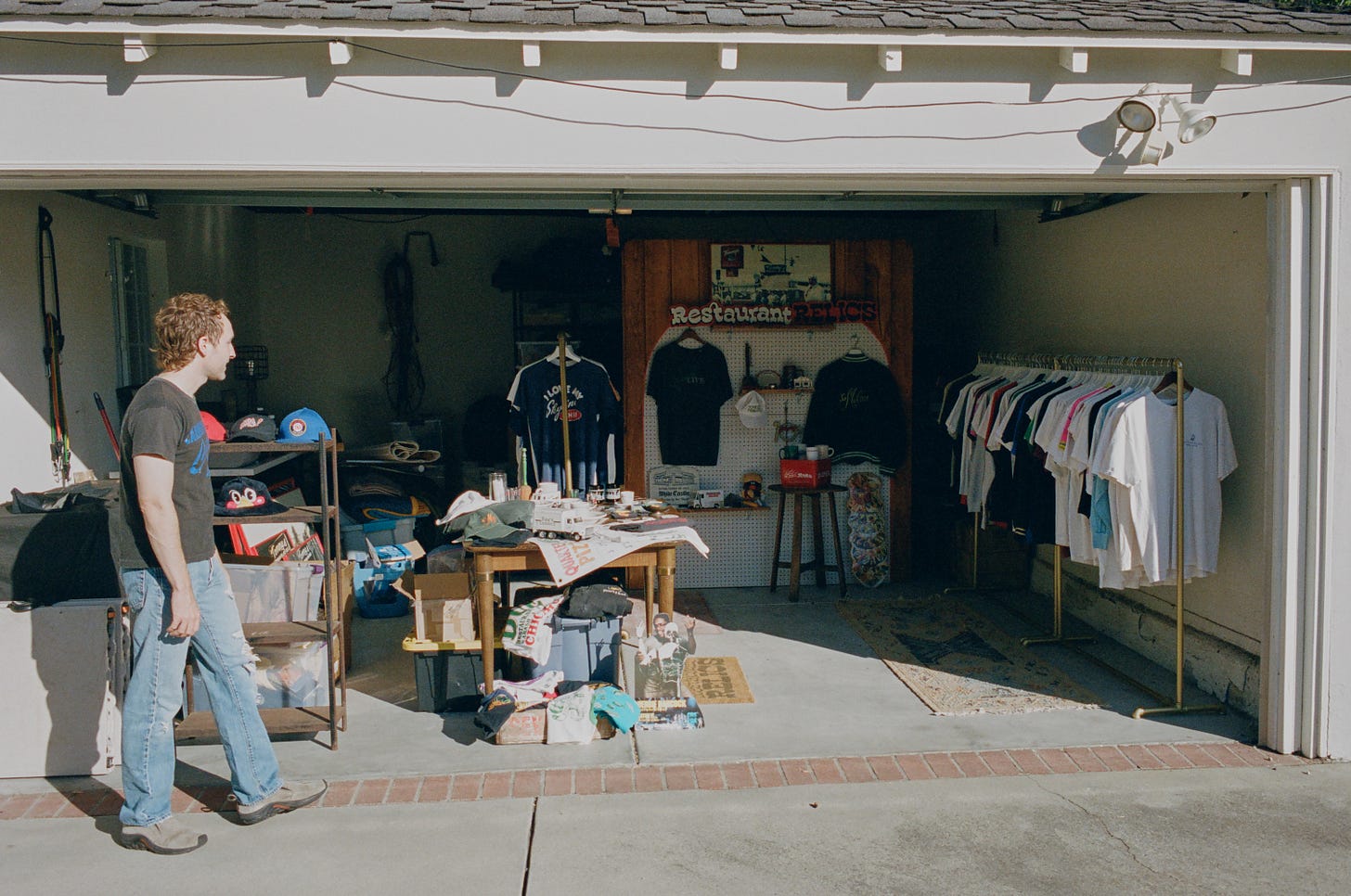
So cool!!!!